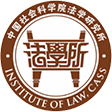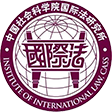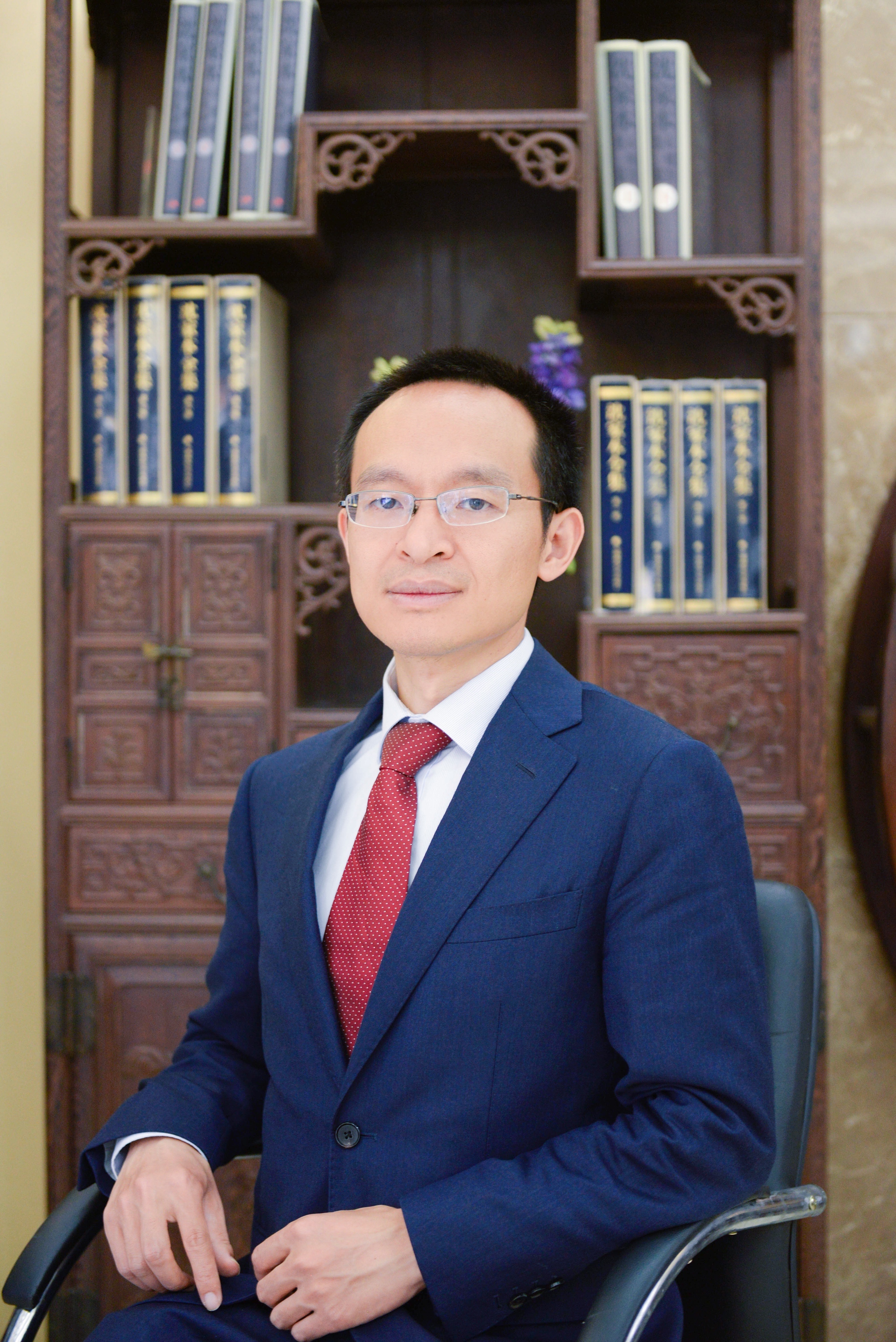李庆明,男,汉族,1983年生,江西上饶人。
法学博士,中国社会科学院国际法研究所研究员、国际私法研究室主任、中国社会科学院大学法学院教授、《国际法研究》编辑。
2000年9月至2009年6月就读于武汉大学法学院,先后获法学学士(2004年)、硕士(2006年)、博士学位(2009年)。曾赴中国文化大学(2008年)、哥伦比亚大学(2010-2011年)等机构访问研究。曾借调最高人民法院研究室(2025年)等机构从事研究工作。
出版专著《外国国家豁免法释用》(法律出版社2025年版)、《美国的外国主权豁免理论与实践》(人民日报出版社2021年版)、《美国〈外国人侵权请求法〉研究》(武汉大学出版社2010年版),在《国际法研究》《环球法律评论》《人民日报》等刊物上发表论文、评述40余篇,主持国家社科基金一般项目“《外国国家豁免法》实施中的外交介入问题研究”、青年项目“国际人权民事诉讼中的国家豁免问题研究”,主持中国社会科学院重点课题“中国政府在美国诉讼的对策”等课题若干,获得中国国际私法研究会优秀学术成果奖一等奖2次、中国社会科学院优秀对策信息三等奖等奖励,曾接受中央电视《焦点访谈》、新华社、《人民日报》等主流媒体采访。
手机:+86-15810516914 电邮:lawyerlee83@126.com
联系地址:中国北京市东城区沙滩北街15号,100720。
主要研究领域:国际私法,重点研究国际民商事争议解决、管辖权、国家豁免、国际商事仲裁。
社会兼职:中国国际私法研究会常务理事兼副秘书长、上海国际经济贸易仲裁委员会(上海国际仲裁中心)仲裁员、上海仲裁委员会仲裁员、重庆仲裁委员会仲裁员、廊坊仲裁委员会仲裁员
主要成果目录
(一)著译作
1.《外国国家豁免法释用》(独著),法律出版社2025年版。
2.《美国的外国主权豁免理论与实践》(独著),人民日报出版社2021年版。
3.《美国〈外国人侵权请求法〉研究》(独著),武汉大学出版社2010年版。
4.《国际私法程序中礼让的新作用》(独译),中国社会科学出版社2011年版。
5.《国际法研究导论》(参编),中国社会科学出版社2021年版。
6.《超越陷阱——从中美贸易摩擦说起》(与强世功等合著),当代世界出版社2020年版。
7.《上海自贸试验区建设推进与制度创新》(与廖凡等合著),中国社会科学出版社2017年版。
8.《国际私法学的新发展》(参编),中国社会科学出版社2015年版。
9.《中国国际私法司法实践研究(2001—2010)》(与黄进、杜焕芳等合著),法律出版社2014年版。
10.《当代国际法研究》(参编),中国社会科学出版社2010年版。
11.《法学教育的中国模式》(参编),中国社会科学出版社2010年版。
12.《国际私法学的新发展》(参编),中国社会科学出版社2011年版。
13.《变动中的国际法:前沿与热点》(参编),社会科学文献出版社2012年。
14.《涉外民事诉讼管辖权问题研究》(参编),武汉大学出版社2008年版。
(二)论文、译文、评论
1.《〈外国国家豁免法〉第12条国家豁免的仲裁例外研究》(与刘心雨合著),载《国际法学刊》2025年第3期。
2.《〈民事诉讼法〉第305条与〈外国国家豁免法〉第16条的关系研究》,载《国际法学刊》2025年第1期。
3.《论外国中央银行资产的国家豁免与其他国家的没收和集体反措施》,载《环球法律评论》2024年第5期;人大复印资料《国际法学》2025年第1期全文转载。
4.《论中国〈外国国家豁免法〉的限制豁免制度》,载《国际法研究》2023年第5期。
5.《加强涉外领域立法的重要成果——〈外国国家豁免法〉草案述评》,载《人民日报》2023年1月9日,第15版。
6.《中国在美国法院的主权豁免诉讼述评》,载《国际法研究》2022年第5期,《高等学校文科学术文摘》2022年第6期摘编;人大复印资料《国际法学》2023年第2期全文转载。
7.《美国疫情诬告滥诉终将失败》,载《法制日报》2020年6月29日,第4版;《新华月报》2020年第14期全文转载。
8.《美国新冠疫情诬告滥诉的违法性分析》,载《法律适用》2020年第21期。
9.《论美国域外管辖:概念、实践及中国因应》,载《国际法研究》2019年第3期,《高等学校文科学术文摘》2019年第4期摘编;人大复印资料《国际法学》2019年第10期全文转载。
10.《论中国国有企业在美国民事诉讼中的国家豁免》,载《江西社会科学》2018年第11期;人大复印资料《国际法学》2019年第3期全文转载。
11.《论域外民事判决作为我国民事诉讼中的证据》,载《国际法研究》2017年第5期;人大复印资料《国际法学》2018年第2期全文转载。
12.《境外仲裁机构在中国内地仲裁的法律问题研究》,载《环球法律评论》2016年第3期。
13.Comparative Study on Selected Aspects of the Latest Private International Law Legislation Across the Taiwan Straits(第二作者),载《中国法学前沿》2015年第2期。
14.《美国联邦法院确认外国仲裁裁决的管辖权问题——以涉及中国政府的两个案件为例》,载《国际法研究》2015年第3期。
15.《马航失联索赔的法律适用》,载《中国审判》2014年第5期。
16.《国际人权条约与美国法院的双重标准》,载《人权》2013年第5期。
17.《中国国家财产在美国的执行豁免——以沃尔斯特夫妇诉中国工商银行为例》,载《武汉大学学报(哲学社会科学版)》2013年第4期。
18.《韩亚空难索赔官司怎么打》,载《经济参考报》2013年7月30日。
19.《国家豁免与诉诸法院之权利——以欧洲人权法院的实践为中心》,载《环球法律评论》2012年第6期。
20.《美国〈外国人侵权法令〉介评》,载《月旦民商法杂志》2012年第3期。
21.《美国〈外国人侵权请求法〉诉讼中的管辖权》,载《美国研究》2012年第1期;人大复印报刊资料《国际法学》2012年第8期全文转载。
22.《诊所法律教育:中国法律硕士培养制度改革的基本方向》(与冀祥德研究员合著),载《法学杂志》2011年第2期。
23.《美国〈外国人侵权请求法〉的历史发展》,载《国际法研究》2011年第4卷。
24.《美国〈外国人侵权请求法〉诉讼中的法律选择》,载《武大国际法评论》2010年第12卷。
25.《一国两制下我国区际刑事司法协助研究的回顾与展望》,《武大国际法评论》2009年第9卷。
26.《中国诊所式法学教育的现状与问题——学生的视角》,载日本《法律时报》2007年第79卷第2号。
27.《论国际私法中定性的标准》,载《月旦民商法杂志》2008年6月第20期。
28.《加拿大一公司诉四川省政府案》,载《中国审判》2008年第1期。
29.《美国仲裁背景下的禁诉令制度》,载《商事仲裁》第4卷。
30.《走向成熟的国际私法》,载《武大国际法评论》2006年第4卷。
31.《仲裁的最低正当程序简析》,载《商事仲裁》第1卷。
32.Chinese Judicial Practice in Private International Law: 2006 (co-author), in Chinese Journal of International Law, Vol. 8, Issue 3, 2009.
33.《诉权的行使与国际裁判管辖权》(与黄进教授合著),载The Quarterly Review of Corporation Law and Society, 2007年第4卷第1号。
34.《诉权的行使与国际民事诉讼管辖权》(与黄进教授合著),载《政治与法律》2007年第1期;《人大复印资料(国际法学)》2007年第5期全文转载。
35.《中国法院对中韩贸易争议的管辖权问题》(中、韩文本,与黄进教授合著),载《国际私法研究》(韩国国际私法学会)2007年12月第13卷。
36.《2007年莫里斯诉中华人民共和国案述评》(与黄进教授合著),载《法学》2007年第9期;《人大复印资料(国际法学)》2007年第12期全文转载。
37.《2006年中国国际私法司法实践述评》(与黄进教授合著),载《中国国际私法与比较法年刊》2007年第10卷。
38.《2005年中国国际私法司法实践述评》(与黄进教授、杜焕芳合著),载《中国国际私法与比较法年刊》2006年第9卷。
39.《2004年中国国际私法司法实践述评》(与黄进教授、杜焕芳合著),载《中国国际私法与比较法年刊》2005年第8卷。该文同时收录于孙南申、杜涛主编:《当代国际私法研究——21世纪的中国与国际私法》,上海人民出版社2006年版。
40.《咨询的医学模式——告诉委托人坏消息》(译文,Linda F. Smith著),载李傲、Pamela N. Phan编:《实践型法律人才的培养——诊所式法律教育的经验》,法律出版社2005年版。
41.《戴查坎迪博士到底在哪里——事实调查的故事》(译文,Agata Syzpszak著),载李傲、Pamela N. Phan编:《实践型法律人才的培养——诊所式法律教育的经验》,法律出版社2005年版。
42.《欧盟理事会2003年11月27日关于婚姻事项及父母亲责任事项的管辖权及判决的承认与执行并废除第1347/2000号(欧共体)条例的第2201/2203号(欧共体条例)》(与邹国勇合译),载《中国国际私法与比较法年刊》2006年第9卷。
43.《化外人相犯制度并不有损国家主权》,载《法学家茶座》2005年第9辑。
44.《提升中国国际私法在世界上的影响力》(与徐光明合著),载《社会科学报》2007年11月8日。
45.《诊所式法律教育的起源和本土化》(与项焱教授合著),载《人民法院报》2005年1月14日。
(三)研究报告(不含保密的内部报告)
1.《〈涉外民事关系法律适用法〉的实施调研报告》,中国社会科学院2012年度国情调研重点课题结项报告。
2.《中国法院判决在域外的承认与执行》(与沈涓研究员等合著),中国社会科学院2012年度国情调研重点课题结项报告。
(四)科研项目(不含保密的内部项目)
1.主持国家社科基金2024年度一般项目“《外国国家豁免法》实施中的外交介入问题研究”(在研)
2.主持国家社科基金2012年度青年项目“国际人权民事诉讼中的国家豁免问题研究”(已结项)。
3.主持中国社会科学院2012年度重点课题“中国政府在美国诉讼的对策”(已结项)。
4.主持中国社会科学院2012年度国情调研课题“《涉外民事关系法律适用法》的实施”(已结项)。
5.主持中国社会科学院2010年度青年启动基金课题“美国《外国人侵权请求法》研究”(已结项)。
LI Qingming
I.Basic Information
LI Qingming is a research fellow and the deputy head of the Department of Private International Law, Institute of International Law, Chinese Academy of Social Sciences and a part-time editor of the Chinese Review of International Law.
He graduated from the Law School of Wuhan University with a Bachelor of Law in 2004, a LL.M. in 2006 and a Ph.D. in Law in 2009. He was a visiting scholar at Colombia Law School from September 2010 to September 2011. His main research areas are private international law, international civil litigation and commercial arbitration, focusing on jurisdiciton and state immunity. He published two monographs, one of which is THE THEORY AND PRACTICE OF FOREIGN SOVEREIGN IMMUNITY OF THE UNITED STATES (People's Daily Press, 2021), and the other is A STUDY OF THE ALIEN TORT CLAIMS ACT OF U.S.A.(Wuhan University Press, 2010). He is the translator of the book THE NEW ROLE OF COMITY IN PRIVATE PROCEDURAL INTERNATIONAL LAW (China Social Sciences Press, 2011). He has published over 30 articles and notes in various Chinese and foreign academic journals.
II. Main Academic Viewpoints
Professor LI is the first Chinese scholar who has systematically studied international human rights civil litigation in the United States of America. In the book A STUDY OF THE ALIEN TORT CLAIMS ACT OF U.S.A., he expressed the following opinions: (1) the revival of the ATCA in 1980s was closely related to the upsurge of the civil rights movement in the United States, as well as the explosion of international civil litigation. (2) The jurisdiction of the ATCA is not the universal civil jurisdiction, but exercised according to the domestic law of the United States, and the cases are actually associated with the United States. (3) After the plaintiffs have brought the civil action according to the ATCA, the defendant may put forward many defenses such as forum non conveniens, exhaustion of local remedy, state immunity, the acts of state doctrine, international comity, the political question doctrine, and thus many cases are dismissed. (4) The practice of holding individuals accountable for their conductsof violation of international law has not been generally accepted by nations except the United States. The prosperity of the alien tort litigation in the United States is rooted in the United States’ unique legal system, and it is difficult for other countries to transplant, copy and use for reference.
He has published a book and 9 articles on state immunity. He published the monograph THE THEORY AND PRACTICE OF FOREIGN SOVEREIGN IMMUNITY OF THE UNITED STATES, introducing and reviewing the interaction between the U.S.A. and other states on the state immunity. He reviewes the sovereign immunitiescases against China in the United States courts, and analyzes the measures and tools to deal with those cases. Subject to the broad definition of “foreign state” in the FSIA and judicial precedents, foreign state and “political subdivision of a foreign state” include China’s central government and its directly subordinate authorities, diplomatic missions and local governments, and an agency or instrumentality of a foreign state includes any public institution such as the Chinese Academy of Sciences directly administered under the State Council, and State-owned Enterprises directly owned by the State Council (including SASAC), and under certain conditions, an organ of a foreign state or political subdivision including any public institution that is not directly administered under the government but functions mainly for public career such as science, education, culture and public health may claim sovereign immunity. However, whether a foreign state will be immune from suits depends on whether the disputed acts fall within 28 U.S. Code § 1605 and §1610. China adheres to absolute immunity of states and ignores all frivolous or malicious cases without any factual or legal basis. China urges the U.S. Department of State to file statements of interest to the United States courts to argue for China on the invalid service, dismissal of the cases and non execution of the judgments and orders. The Ministry of Justice of the People's Republic of China refuses to assist the United States courts in serving judicial documents that infringe on China’s sovereignty, and the central government and local governments of China will decide whether to appear in court to challenge the jurisdiction of the United States courts or even the substantive issues of the cases if necessary after being served by the U.S. Department of State. Due to the complexity and sensitivity of foreign sovereign immunities cases, and the obligation of the United States courts to proactively review whether they have jurisdiction over the case ex officio, Chinese and foreign scholars and non-governmental organizations may apply to the United States courts for submission of Amici Curiae Briefs, which helps the United States courts find that the case shall be dismissed on the ground of lack of jurisdiction. If the United States court makes a default judgment against China without regard to China’s opposition, China may refuse to recognize and enforce the default judgment.
He also argues that the right of access to court may be limited by the principle of state immunity. The purpose of state immunity granted to foreign countries to limit the right of access to the court is legitimate and in compliance with international law. As to the principle of proportionality, the restrictive rules in the U.N. Convention on Jurisdictional Immunities of States and Their Property is playing an increasingly important role, especially in cases involving employment contract, personal injury, the protection of the complainant's right to access to court, in which it is necessary to limit the invocation of state exemption. The decisions of the European Court of Human Rights have a profound impact on State parties' domestic law and practice, which in turn influence the decisions of the European Court of Human Rights, and the relationship between right of access to court and state immunity may change and develop in the future. Of course, as to the relationship between jus cogens and state immunity, the European Court of Human Rights tends to recognize that the granting of state immunity by State parties' domestic courts to foreign states does not violate the principle of proportionality or article 6(1) of the European Convention on Human Rights.
He argues that China shall take such measures to cope with the extraterritorial jurisdiction of the United States as follows: cooperate with other countries to oppose the practice of exorbitant extraterritorial jurisdiction of the United States; assist enterprises and individuals who are the targets of extraterritorial jurisdiction of the United States to argue the cases; improve and perfect foreign relations law of China, especially the jurisdiction legislation, international judicial cooperation system and blocking statutes.
He argues that using the extraterritorial civil judgments as evidence does not harm the sovereignty of China, nor does it bring injustice to the parties. On the contrary, it contributes to increasing judicial efficiency, saving judicial resources and reducing unnecessary conflicts of judgments. The parties who have applied to use extraterritorial civil judgments as evidence should prove the authenticity and validity of the judgments, and the other party may also put forward other facts and evidences to refute the facts established by the judgments. Chinesecourts should not regard the facts established by extraterritorial civil judgments as proof of facts without evidence, but just a kind of evidence, and should make the judgment for the case in question based on the whole facts and forum’s law.
He has published an article on international commercial arbitration, in which he argues that an award made by an overseas arbitration institution which administers the arbitration in the Mainland of China is not a "non-domestic award". The problems of how to support and supervise such arbitration and by what criteria to determine the recognition and enforcement of the award are still to be solved. The fact that parties from the Mainland of China are increasingly participating in overseas arbitration, coupled with the need to develop the foreign-related legal service industry and to promote the international and public credibility of China's arbitration, necessitates the permission of overseas arbitration institutions to administer arbitration in the Mainland of China. It is thus imperative that the "Arbitration Law of the People's Republic of China" be revised to stipulate that the nationality of the arbitration award is to be determined by the seat of arbitration, and to treat any arbitration seated in the Mainland of China equally, be it under the administration of overseas arbitration institutions or arbitration commissions established under the Arbitration Law of the People's Republic of China.
III. Main Publications
1.THE THEORY AND PRACTICE OF FOREIGN SOVEREIGN IMMUNITY OF THE UNITED STATES (People's Daily Press, 2021);
2.A STUDY OF THE ALIEN TORT CLAIMS ACT OF U.S.A., Wuhan University Press, 2010;
3.THE NEW ROLE OF COMITY IN PRIVATE PROCEDURAL INTERNATIONAL LAW, translated work, China Social Sciences Press, 2011;
4.“On the Restrictive Immunity System of China's Foreign State Immunity Law”, Chinese Review of International Law, issue 5 (2022);
5.“Review of the Draft of the Law on the Immunity of Foreign States: An Important Achievement in Strengthening Legislation in the Field of Foreign Affairs”, People's Daily, January 9, 2023;
6.“A Review of Sovereign Immunities Cases Against China in the United States Courts”, Chinese Review of International Law, issue 5 (2022);
7.“The Extraterritorial Jurisdiction of the United States: Concept, Practice and China’s Response”, Chinese Review of International Law, issue 3 (2019);
8.“On the State Immunity of Chinese State-Owned Enterprises in the Civil Procedures of the United States Courts”, Jiangxi Social Sciences, issue 11 (2018);
9.“On Using Extraterritorial Civil Judgments as Evidence in Civil Procedure in China”, Chinese Review of International Law, issue 3 (2017);
10.“Legal Issues Arising out of Arbitration Seated in the Mainland of China but Administered by Overseas Arbitration Institutions”, Global Law Review, issue 3 (2016);
11.“Jurisdiction Issues in Confirming Foreign Arbitral Awards in the Federal Courts of the United States:Study of Two Cases Involving the Chinese Government ”, Chinese Review of International Law, issue 3 (2015);
12.“Immunity from Execution of State Property of People’s Republic of China in the United States - Taking Walters v. Industrial and Commercial Bank of China, Ltd, et al. as an Example”, Wuhan University Journal (Philosophy & Social Sciences), issue 3 (2013);
13.“State Immunity and Violation of Human Rights”, Global Law Review, issue 6 (2012);
14.“On the Jurisdiction over the Cases under the Alien Tort Statute of U.S.A.”, American Studies Quarterly, issue 1 (2012);
15.“Chinese Judicial Practice in Private International Law: 2006” (co-author), Chinese Journal of International Law, issue 3 (2009);
16.“On the Qualification Standard in the Private International Law”, Cross-Strait Law Review, issue 20 (2008);
17.“A Chinese Student’s Perspective of Clinic – Why Clinic?”, Horitsu Jiho, issue 3 (2007);
18.“A Review of Judicial Practice of Chinese Courts in 2005” (co-author), Chinese Yearbook of Private International Law and Comparative Law (2006);
19.“Private International Law Towards Maturation”, International Law Review of Wuhan University, issue 4 (2006);
20.“An Introduction to the Due Process of Arbitration Procedure”, CommercialArbitration, issue 1 (2006);
21.“A Review of Judicial Practice of Chinese Courts in 2004” (co-author), Chinese Yearbook of Private International Law and Comparative Law (2005).




